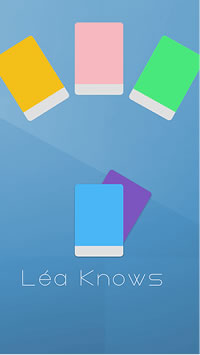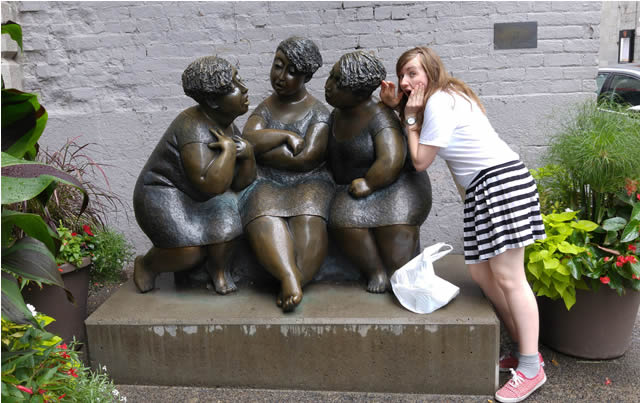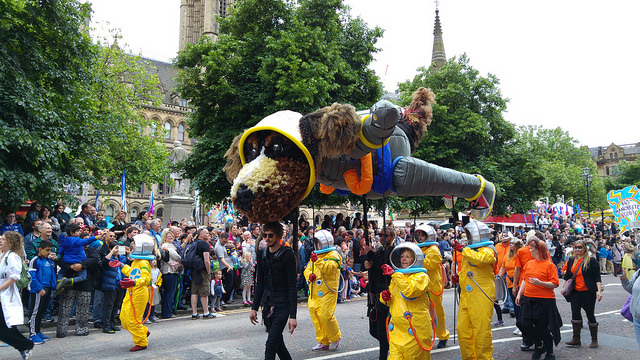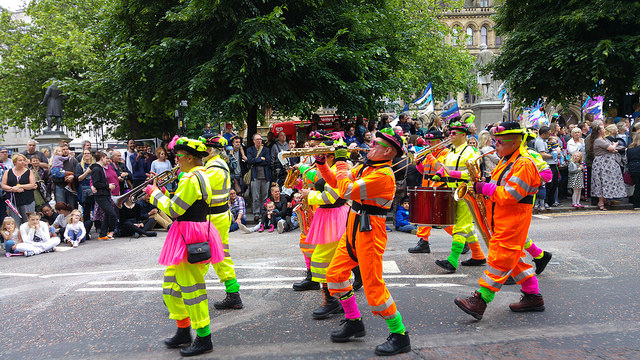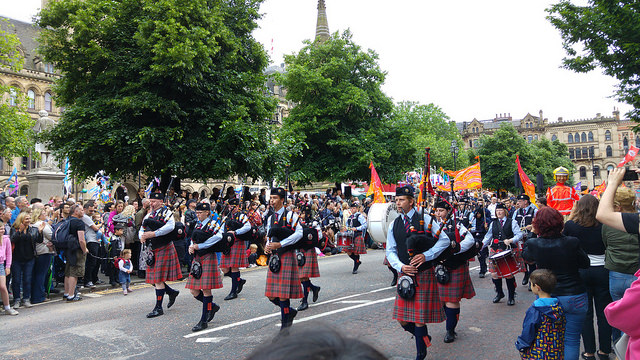Today we have a guest post by Olly Richards of IWillTeachYouALanguage.com

If you’re starting to learn a new language, the internet is awash with advice and resources geared towards beginners.
But as you make progress with your new language, and hit the dreaded intermediate plateau, it becomes more difficult to know exactly how to study.
When I decided to create an online course to learn Spanish, I decided to focus on this problematic intermediate stage, in order to help the disproportionate number of Spanish learners who find themselves stranded there.
But how do you help someone learn intermediate Spanish?
What is the best way to learn Spanish when you’re stuck at the intermediate plateau?
And how do you do this online?
If you deliver classes face-to-face, the direct interaction with students allows you to help them more intimately. How can you get people results through online learning?
Attempting to solve this problem has been one of the most interesting challenges I’ve faced so far in the development of language materials.
Conceptualising An Intermediate Spanish Course
On the one hand, I have the memory of becoming fluent in Spanish myself, and my ideas for how to learn a new language in general. On the other, I know that not everyone can follow my path, and must contend with their own unique circumstances.
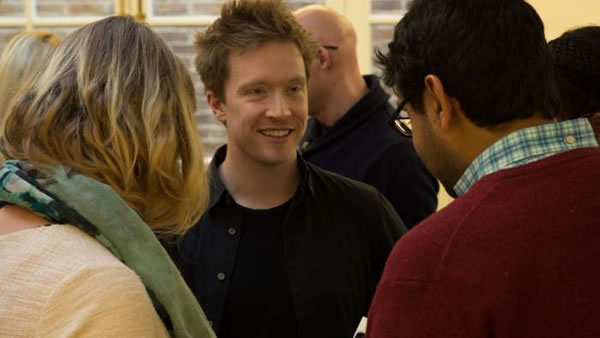
When I first created the concept for the Fluent Spanish Academy, I had a broad idea of the resource I wanted to create.
But I also knew that it would need to be moulded over time, depending on the feedback from members, and the results they got in their Spanish.
After all, it’s not just about the quality of the materials you make, it’s about how students interact with them, and that can be hard to predict.
For this reason, the Fluent Spanish Academy first launched as a BETA group. I set a low monthly membership price, and invited people to join in return for their direct feedback on the content. 100 members joined, and the doors stayed closed for around 4 months while I worked with everyone and listened to their feedback.
So, what exactly was inside?
Well, after a lot of deep thinking about the nature of the intermediate plateau, and why it’s difficult for Spanish learners, I realised three things:
1. You need to begin to study the whole language, rather than a diet of structured tuition
2. You need learning advice from more experienced others (such as a friend, tutor, or fellow learners), so you know what to improve and how
3.You need a community of other learners, so you can stay motivated for long enough to break through the intermediate plateau.
The main features of the Academy therefore addressed these three points primarily.
Here’s how…
1. Study The Whole Language
One of the main strategies that helped me become fluent in Spanish after learning the basics was to immerse myself in the whole language. Listening to Spanish spoken in groups, emailing friends, reading books, and so on.
The difficulty for the intermediate learner, however, is that this kind of activity is often far above your level, and it can be difficult to feel like your studying is productive.
For the Academy, then, I created the following:
- Weekly audio lessons, where I present natural dialogues in Spanish, full of real, conversational phrases you’ll hear on the street. This gives the learner exposure to useful, authentic language in a context that isn’t overwhelming.
- Short stories in Spanish with accompanying audio, which focus on specific areas of grammar, such as the imperfecto vs preterito, or ser vs These give reading and listening practice that is comprehensible, not too long, and via the medium of story.
One of the main pieces of feedback I got from the BETA stage was that members needed more challenging, unstructured listening practice. So, I added:
- Short, spontaneous conversations in Spanish between native speakers from different countries. These come fully transcribed, and give the learner the challenge of listening to real Spanish with different accents, plus the ability to read along and check any difficult parts.
2. Advice On Your Spanish
When I was learning Spanish, I was lucky enough to have some very astute mentors. They were both native and non-native Spanish speakers who were very generous with their feedback and pointed out areas of my speaking that needed improvement.
They would give me incredibly useful “meta” feedback like: “Olly, when you begin sentences in Spanish it sometimes sounds a bit unnatural.” Or: “You know, in the Canary Islands you should say X. Y is from Spain!”
This kind of feedback helped me correct my errors quickly, learn Spanish fast, sound more native-like, and learn things that I would never have learnt from a book.
In the Fluent Spanish Academy, I wanted to replicate this advice, because I know just how important it was. Therefore, every month, we have a special live training session, where I teach members specific learning strategies that have helped me, plus certain shortcuts I’ve used to master difficult areas of Spanish.
3. A Community To Stay Motivated
This was a no-brainer, but harder than I thought to get right!
With new members joining the Academy from all around the world, we had a ready-made community of Spanish learners. I thought about the ideal way to organise the community, and I created a private forum for the website, organised into different message boards, with special areas for discussing resources, asking questions, arranging meetups etc.
At first, it was on fire!
Everyone was so enthusiastic to get started that the conversation and interaction in the forums was better than I could have ever imagined. However, after a few months, the buzz started dying down. I wasn’t sure why that was, but eventually I realised it was because in the era of social media, people only head to one place for their conversation… Facebook.
Although I had specifically decided not to host the community on Facebook at the beginning, because I wanted to try and encourage depth and focus, I eventually made the decision to migrate the forums over to a private Facebook group.
Luckily, it was the best decision I’ve made so far!
The new Facebook group quickly took off, and there was an instant rekindling of community and motivation, I suppose because…we’re all on Facebook already, and that’s where the conversation is happening!
What was great about this move, though, was the new possibilities I discovered as a result. I began to use the interactivity of the Facebook group to organise special monthly challenges. I would give everyone a special daily study aim for the month, together with supporting materials and accountability partners to make sure they study.
As I write this piece, for example, we’re gearing up to spend an entire month focused on improving Spanish past tenses. Every day, members will receive special exercises on the imperfect vs preterite (e.g. Comió or comía? Fue or iba?), and they have to check off their progress on a public tracking sheet after studying every day.
This has had the wonderful effect of gathering everyone around a common aim, and the community has become far more lively as a result!
Innovation In Learning Spanish Online
I’ve learnt the 8 languages I speak in non-conventional ways.
As a result, I’m a big believer in innovation in language teaching.
I find that language learners often get trapped with the conventional study methods they were taught at school, but can find their motivation and progress transformed when exposed to more independent and community-based ways of learning.
That’s what I’m trying hard to do with the Fluent Spanish Academy, and certainly, the results and feedback from our members so far suggest that it’s working!
The Academy is by no means perfect, but it’s been a fascinating journey creating this community, and I look forward to turning it into the single best resource for Spanish learning on the entire internet!
Dream big, right?
About the writer
Olly Richards is a language teacher, consultant and author, and speaks 8 languages. He runs IWillTeachYouALanguage.com, where he blogs regularly about language learning.
